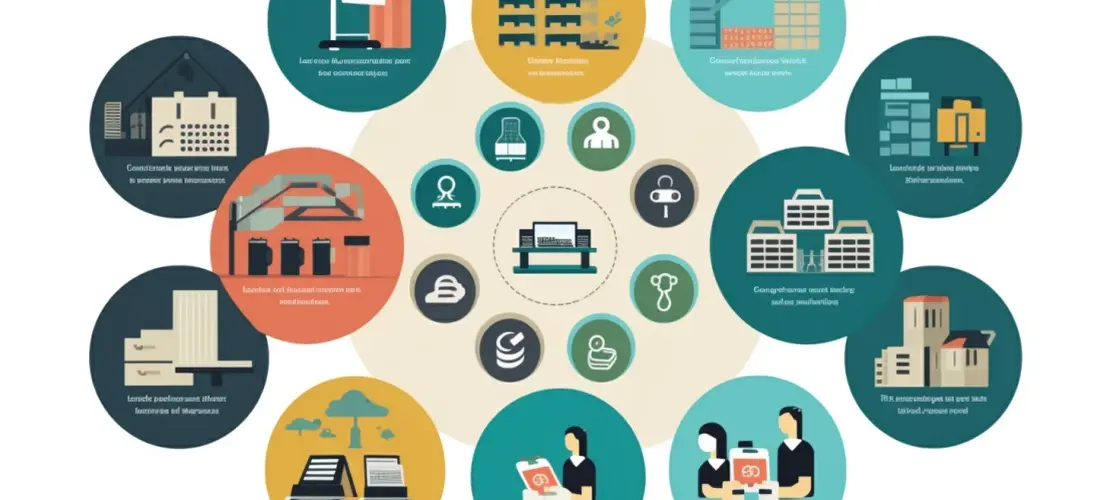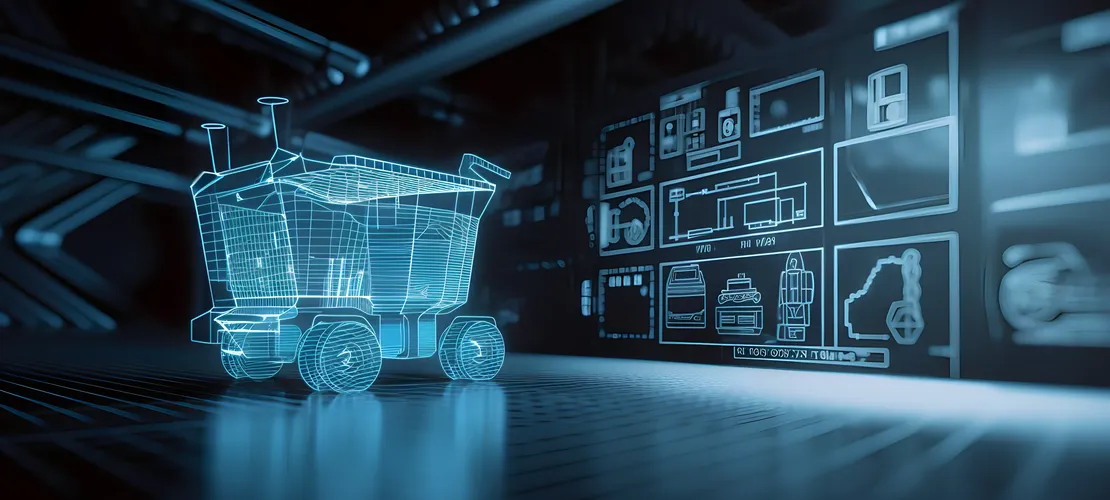The Importance of Credit Card Reconciliation for Startups and Mid-Size Companies
Buckle up, entrepreneurs and finance mavens! We're diving into the world of credit card reconciliation and purchase approval software. Now, I know what you're thinking - Accounting? Yawn! - but stick with me. Matching your credit card statements to your accounting records might not sound thrilling, but when done correctly, it's an absolute game-changer when done correctly. It's like finding the missing piece to your financial jigsaw puzzle. And guess what? It's even more crucial for startups and mid-size companies. Why? Because when your company's just finding its feet, every penny counts. And with credit card reconciliation and purchase approval software done right, you can spot discrepancies, keep tabs on your expenses, and keep your finance team humming happily. Getting the right stuff at the right time is crucial. That's where procurement software steps in. It's like a turbo boost for your purchasing game, helping you buy smarter, save cash, and keep your operation running smoothly.
If you are looking for some tips and tricks to manage yourown general ledger follow the next link to our "General Ledger BestPractices" article.
The Role of Purchase Order Software in Streamlining Administrative Tasks through Integrations
Let's spice up the accounting process, shall we? Remember those frustrating days of manual data entries, human errors, and head-scratching over discrepancies? Those days are history thanks to the magic of purchase order software. Like purchasing software or procurement software, purchase order software is a platform that integrates seamlessly with your suppliers, automatically pulls in data, and matches it with your general ledger, leaving you with clear, precise, and reconciled accounts. Like a dream come true, right? But it's not a dream. Welcome to the reality of administrative streamlining!
Streamlining the Accounting Process through Integrations with Leading Providers like ControlHub
Overview of ControlHub as a Primary Data Source for Industrial Parts
ControlHub is the superstore for industrial parts, housing various tools and components essential for any hardware-focused business. As a primary data source, ControlHub provides an extensive array of parts as a primary data source in one organized, easily searchable platform. This vast offering eliminates the need for procurement teams to scour multiple sources and negotiate with various suppliers. For high-level executives, having such a consolidated, comprehensive platform translates into more efficient decision-making, less time wasted, and more robust control over the procurement process.
Benefits of Integrating Purchase Requisition Software with ControlHub’s Punchout Catalog
ControlHub's Punchout Catalog can be effectively leveraged through integration with purchase requisition software. This technology tandem significantly reduces the manual labor associated with the procurement process. It minimizes data entry errors, automatically updates purchase information, and offers real-time insights into the status of requisitions and approvals. The key benefit is the drastic enhancement in data accuracy, as the automated process ensures that every transaction is correctly logged, categorized, and synced with your financial records. This seamless integration significantly streamlines business credit card reconciliation, removing the stress and confusion of mismatches and discrepancies.
Detailed Process of Integrating the Accounting Team's Workflow with ControlHub
The beauty of integrating the accounting team's workflow with ControlHub lies in its automation and accuracy. Once connected, your purchase requisition software directly syncs with ControlHub’s Punchout Catalog, logging purchases as they occur. This real-time recording extends to credit card transactions, reducing the delay and potential inaccuracies of manual data entries. Your general ledger is updated almost instantaneously, giving your finance team an accurate and current financial picture. This automated process translates into a smoother, more efficient credit card reconciliation, ensuring a near-flawless match between your financial records and credit card statements.
ControlHub for Electronic Components
ControlHub as a Key Data Source for Electronic Components
In the electronic components sector, ControlHub is the go-to data source. The platform offers an unmatched array of components catering to hardware-centered businesses vast and varied needs of hardware-centered businesses. For high-level executives in procurement-heavy companies, having a single platform that caters to their diverse needs can greatly optimize their procurement process, making ControlHub an indispensable tool in their arsenal.
Advantages of Integrating Purchase Order Software with ControlHub’s Punchout Catalog
By integrating purchase order software with ControlHub’s Punchout Catalog. The automation eliminates the likelihood of data entry errors, thus reducing the time spent rectifying these mistakes. More importantly, this integration accelerates the procurement process, allowing for automated ordering, approval, and tracking. As a result, credit card reconciliation becomes a streamlined process, as all transactions are accurately recorded and can be matched with credit card statements effortlessly.
Steps to Integrate the Procurement Process with ControlHub for the Finance Team
Integrating the procurement process with ControlHub is a relatively straightforward process that brings immense benefits. Once connected, every purchase made through the platform is automatically recorded, providing the finance team with real-time data. This transparency allows for accurate bank reconciliation as every transaction is accounted for, eliminating any possible discrepancies. The end result is a faster and more efficient credit card reconciliation process, a key factor in maintaining an accurate financial outlook for your business.
ControlHub and Amazon Punchout
Integrating Procurement Process with ControlHub: A Boon for the Accounting Team
Integrating the procurement process with ControlHub provides a substantial boost to the accounting team. It simplifies purchasing decisions by providing real-time data on purchases, approvals, and deliveries, making it easier to track expenses and manage budgets. Furthermore, it greatly enhances the efficiency of the credit card reconciliation process, making it easier for the accounting team to ensure financial accuracy and transparency.
Simplifying Purchasing Decisions and Improving Efficiency through Purchase Order Software
Integrating purchase order software with ControlHub can greatly simplify purchasing decisions. With real-time tracking, automated ordering, and streamlined approval processes, businesses can eliminate uncertainties in the procurement process. Furthermore, the integration simplifies the accounting process, enabling the efficient recording of transactions, ensuring accurate financial records, and making credit card reconciliation a breeze.
Incorporating ControlHub into the Procurement Process for Seamless Credit Card Reconciliation
Incorporating ControlHub into the procurement process is a strategic move that can greatly streamline credit card reconciliation. With all transactions being automatically recorded and updated in real-time, the task of matching receipts with credit card statements becomes much simpler. The entire reconciliation process becomes more efficient, reducing the time and resources required and ensuring greater financial accuracy.
Navigating Supplier Negotiations with ControlHub
Leveraging ControlHub to strengthen your negotiation capabilities can lead to significant financial savings and improved supplier relationships. The platform's vast array of industrial parts provides a comparative advantage, offering visibility into market trends, pricing norms, and the range of available products.
This knowledge base can enhance your bargaining power, enabling you to secure competitive prices and favorable terms. Additionally, ControlHub's streamlined interface simplifies supplier interactions, allowing for smoother communication, improved mutual understanding, and the fostering of long-term supplier partnerships. As a high-level executive, you can strategically utilize this information to drive cost efficiencies and optimize procurement activities.
Boosting Operational Efficiency: Automating the Procurement Process with ControlHub
In a hardware-centered, procurement-heavy company, operational efficiency is paramount. ControlHub supports this objective by providing automation capabilities that streamline the procurement process. Automated data entry and order placement functions reduce the likelihood of manual errors, improving accuracy and saving time. Meanwhile, real-time inventory management allows for proactive replenishment planning, preventing supply shortages and potential production disruptions.
Moreover, with process efficiencies facilitated by ControlHub, businesses can allocate resources more effectively, enabling cost savings and contributing to overall profitability. As a high-level executive, you can harness these benefits to drive operational excellence and enhance your company's competitive edge.
Strategic Sourcing and Procurement with ControlHub: Optimizing Supply Chain Management
ControlHub can be a powerful tool for optimizing your supply chain management strategy. Its wide array of industrial parts and extensive supplier network facilitates strategic sourcing, enabling companies to identify and engage with the most suitable suppliers for their needs. By providing real-time data on product availability, delivery times, and pricing, ControlHub supports informed decision-making, allowing companies to manage supply chain risks and ensure business continuity.
Moreover, the platform's integration capabilities can link with existing ERP systems, enabling seamless data flow across your supply chain for improved visibility and control. As a high-level executive, you can leverage these features to build a robust and resilient supply chain, supporting your company's operational stability and growth prospects.
Scaling Your Business with ControlHub: The Benefits for Startups and Mid-Sized Companies
Startups and mid-sized companies often grapple with increasing procurement demands as they grow. ControlHub provides a scalable solution to this challenge. Its comprehensive range of industrial parts can cater to expanding production needs, while the platform's automation capabilities can handle increasing transaction volumes with ease.
By reducing manual procurement tasks, ControlHub allows your team to focus on strategic growth initiatives. Furthermore, the platform's flexibility supports changing business needs, providing customizable features to align with your evolving operational processes. As a high-level executive, you can leverage ControlHub to support your company's growth trajectory, ensuring your procurement processes remain efficient and effective as your business scales.
Transforming Financial Oversight: A Closer Look at ControlHub’s Reporting Capabilities
Financial oversight is a critical aspect of business management for high-level executives. ControlHub enhances this function with its robust reporting features. The platform offers in-depth expenditure tracking, providing visibility into procurement spending patterns and identifying potential cost-saving opportunities. Its real-time data capabilities support proactive financial management, allowing for timely budget adjustments and expenditure control.
Moreover, ControlHub’s reporting capabilities can be tailored to provide detailed economic forecasts, supporting strategic planning efforts. By delivering accurate, timely financial data, ControlHub enables executives to make data-driven decisions by offering accurate, timely financial data, contributing to financial stability and profitability—this capacity to transform financial oversight positions ControlHub as an invaluable tool for executives in procurement-heavy companies.
Conclusion
Reaffirming the Significance of Credit Card Reconciliation for Startups and Mid-Size Companies
As we draw our discussion to a close, let's revisit our foundational topic - credit card reconciliation. In the context of startups and mid-size companies, it's far more than just another entry on the accounting checklist. It's a powerful tool for promoting financial transparency and accuracy, a vital stepping stone towards sustained business success.
Underscoring the Imperative of Automation, Streamlined Organization, and Advanced Accounting Solutions like Purchase Order and Requisition Software
Contemporary business challenges demand innovative, practical solutions. In the rapidly evolving business environment of the present day, the adoption of automation, meticulous organization, and avant-garde accounting solutions such as purchase orders and requisition software is no longer optional - it's a necessity. Regardless of whether you're a fledgling startup seeking to establish your presence, or a mid-size company striving to soar to new heights, remember this - a seamlessly streamlined accounting process is your passport to ascendancy.
And so, dear readers, we wrap up our comprehensive exploration into the dynamic universe of credit card reconciliation, integrations, and the game-changing impact of streamlining your accounting process. Let us toast enhanced accuracy, boosted efficiency, and the empowering journey towards unerring financial transparency!
FAQ Section: Unleashing Financial Harmony: Mastering Credit Card Reconciliation with ControlHub Integration
Why is credit card reconciliation important for startups and mid-size companies?
Credit card reconciliation is crucial for startups and mid-size companies because it promotes financial transparency, accuracy and helps optimize expenses. Every penny counts when your company is finding its feet, and credit card reconciliation allows you to spot discrepancies, keep track of costs, and ensure your finance team operates smoothly.
How does purchase order software streamline administrative tasks through integrations?
Purchase order software integrates seamlessly with suppliers, automatically pulling in data and matching it with your general ledger. This integration results in clear, precise, and reconciled accounts, eliminating manual data entries, human errors, and head-scratching over discrepancies. It's a dream come true for streamlining administrative tasks.
What is ControlHub, and how does it serve as a primary data source for industrial parts?
ControlHub is a superstore for industrial parts, providing an extensive array of tools and components essential for hardware-focused businesses. As a primary data source, ControlHub offers a consolidated and easily searchable platform as a primary data source, eliminating the need to scour multiple sources and negotiate with various suppliers. This streamlines decision-making saves time, and provides robust control over the procurement process.
How does integrating purchase requisition software with ControlHub's Punchout Catalog benefit credit card reconciliation?
Integrating purchase requisition software with ControlHub's Punchout Catalog significantly reduces manual labor in the procurement process. It minimizes data entry errors, provides real-time insights into requisitions and approvals, and enhances data accuracy. This seamless integration streamlines credit card reconciliation, removing the stress of mismatches and discrepancies.
How does integrating the accounting team's workflow with ControlHub improve credit card reconciliation?
Integrating the accounting team's workflow with ControlHub brings automation and accuracy to the process. Purchases made through ControlHub's Punchout Catalog are directly synced with your general ledger in real-time, reducing delays and potential inaccuracies from manual data entries. This automation ensures a smoother, more efficient credit card reconciliation process with near-flawless matches between financial records and credit card statements.
How does ControlHub benefit procurement-heavy companies in the electronic components sector?
ControlHub is the go-to data source for electronic components, offering a wide array of components that cater to the diverse needs of hardware-centered businesses. For high-level executives in procurement-heavy companies, ControlHub provides a consolidated platform that optimizes the procurement process, simplifies supplier negotiations, and enhances bargaining power for securing competitive prices and favorable terms.
How does integrating purchase order software with ControlHub's Punchout Catalog simplify purchasing decisions?
Integrating purchase order software with ControlHub's Punchout Catalog simplifies purchasing decisions by providing real-time tracking, automated ordering, and streamlined approval processes. This integration eliminates uncertainties in the procurement process, simplifies the accounting process, and ensures accurate financial records. Credit card reconciliation becomes effortless as all transactions are accurately recorded and matched with credit card statements.
How can ControlHub be incorporated into the procurement process for seamless credit card reconciliation?
Integrating ControlHub into the procurement process automates the recording of transactions and provides real-time data. This transparency allows for accurate bank reconciliation, eliminating discrepancies. The result is a faster and more efficient credit card reconciliation process, maintaining a real financial outlook for your business.
How does ControlHub benefit the accounting team and simplify financial management?
Integrating the procurement process with ControlHub substantially boosts the accounting team by simplifying purchasing decisions, tracking expenses, managing budgets, and enhancing the efficiency of credit card reconciliation. It simplifies the accounting process, ensures accurate financial records, and improves financial accuracy and transparency.
How does ControlHub help businesses boost operational efficiency and optimize procurement?
ControlHub's automation capabilities streamline the procurement process, reducing manual errors, improving accuracy, and saving time. Real-time inventory management allows for proactive replenishment planning, preventing supply shortages. By automating procurement tasks and allocating resources effectively, ControlHub enables cost savings, enhances operational efficiency, and contributes to overall profitability.
How does ControlHub optimize supply chain management and strategic sourcing?
ControlHub's extensive supplier network and real-time data capabilities facilitate strategic sourcing, enabling companies to identify and engage with the most suitable suppliers. By providing real-time data on product availability, delivery times, and pricing, ControlHub supports informed decision-making, manages supply chain risks, and ensures business continuity by providing real-time data on product availability, delivery times, and pricing. Integration with existing ERP systems enables seamless data flow, improving visibility and control across the supply chain.
How does ControlHub support the scaling of startups and mid-sized companies?
ControlHub provides a scalable solution to increasing procurement demands as startups and mid-sized companies grow. Its comprehensive range of industrial parts caters to expanding production needs, while automation capabilities handle increasing transaction volumes. By reducing manual procurement tasks, ControlHub allows teams to focus on strategic growth initiatives, ensuring efficient procurement processes as the business scales.
How does ControlHub enhance financial oversight and reporting capabilities?
ControlHub's robust reporting features offer in-depth expenditure tracking, visibility into spending patterns, and potential cost-saving opportunities. Real-time data supports proactive financial management, timely budget adjustments, and expenditure control. Customizable reporting capabilities deliver accurate, timely financial data, enabling data-driven decision-making and enhancing financial stability and profitability.
Why is a seamlessly streamlined accounting process important for startups and mid-size companies?
A seamlessly streamlined accounting process promotes financial transparency and accuracy vital for sustained business success. By adopting automation, meticulous organization, and advanced accounting solutions, startups, and mid-size companies can navigate contemporary business challenges, optimize expenses, and pave the way for growth and ascendancy.
What is Credit Card Reconciliation?
Month-end reconciliation is ameticulous financial practice that involves harmonizing numerical values acrossvarious accounts, transactions, and expenditures within your company'sfinancial records. It ensures accuracy, transparency, and accountabilityin your financial landscape.
What is General Ledger Reconciliation?
General ledger account reconciliation is the process of comparing the ledger's contents with source documents toensure accuracy. It helps detect discrepancies, prevent fraud, andprovide accurate financial records for decision-making and cash flowmanagement.
What is NetSuite bank reconciliation?
NetSuite Account Reconciliation software automates general ledger accountreconciliations, including bank reconciliations, credit card matching, intercompanytransactions, account receivables and payables, and invoice-to-PO matching.

















